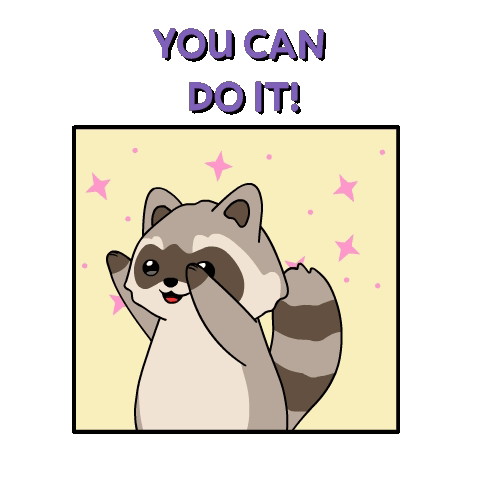I don’t have cake (yet), but I did bake blondies and brownies! ![]()
In addition to celebrating reaching WaniKani level 60, this post has two main purposes: telling an overview of my Japanese learning journey, and sharing some lessons I’ve been learning along the way. ![]() You’re invited to sit down, relax, listen to some chill music
You’re invited to sit down, relax, listen to some chill music ![]() , and enjoy a cozy beverage (mine’s hot chocolate
, and enjoy a cozy beverage (mine’s hot chocolate ![]()
![]() ) while reading.
) while reading. ![]()
![]()

Table of Contents
If clicking / left-clicking a link doesn’t work properly, try long-pressing / middle- or right-clicking + “open in new tab”, and it should work!
- Windgreen’s Winding Road to WaniKani Level 60 (Over 6 Years!)




- Windgreen’s Whimsical Wisdom for Japanese (and Beyond!)




- Parting Words

TL;DR (too long; didn’t read) ![]() : skip to last and most important section
: skip to last and most important section
Hi, there! ![]() I’m Windgreen
I’m Windgreen ![]() : nature admirer, stationery enthusiast, dessert lover.
: nature admirer, stationery enthusiast, dessert lover. ![]()
Studying Japanese has been one of my side quests: not the main quest in my life, but something I enjoy doing in my spare time for curiosity, fun, and growth. ![]()
There were many ups and downs ![]() ; lots of starting, stopping, and restarting.
; lots of starting, stopping, and restarting. ![]() To some extent, that’s a natural part of the process.
To some extent, that’s a natural part of the process.
And yet, a whole lot of those downs were due not so much to outside factors but to my own struggles with self-doubt, indecision and procrastination. ![]()
Walking this road often feels lonely, and sometimes we’re indeed alone. But looking carefully we can see the signs showing that this road has been walked by other people, and we can help each other out. ![]()
I’m grateful for all the people who have helped along the way:
- Friends, for sharing weirdness and offering encouragement

- Family, for accepting said weirdness, even if not always understanding it

- Husband, for being compatibly weird
 and fiercely supportive
and fiercely supportive 
- Teachers, for sharing knowledge and
weirdnesswisdom
- Tech-savvy people, for making
weirduseful sites and apps and user scripts
- Wanikani/Tofugu team, for creating wonderfully weird resources for Japanese learners

- Wanikani Community, for embracing weirdness and being so welcoming and interesting (with many guides, challenges, tips, book clubs, study logs, appreciation threads, and POLL threads)!
 The gentle encouragement from this community helped me come out of my shell and transform from a shy lurker
The gentle encouragement from this community helped me come out of my shell and transform from a shy lurker  to an occasional poster
to an occasional poster  , a Noice Durtle
, a Noice Durtle  , a study logger
, a study logger  , even a POLLmaster
, even a POLLmaster  , and now a level 60 poster
, and now a level 60 poster  !
! 
This is certainly not the end of the journey! In fact, there’s a lot of things to do! ![]()
- WaniKani
 : Finish the remaining lessons. Continue doing reviews for a little longer, but not to the point of burning all items.
: Finish the remaining lessons. Continue doing reviews for a little longer, but not to the point of burning all items. - Shift focus and balance skills
 : Increase study time focused on grammar
: Increase study time focused on grammar  , listening
, listening  , speaking
, speaking  , and reading
, and reading  !
! - JLPT N2
 : Recently I took a practice test and scored enough to pass each section but not enough in total to pass. I plan to keep studying, retake a practice test, and perhaps take the actual JLPT N2 in July next year.
: Recently I took a practice test and scored enough to pass each section but not enough in total to pass. I plan to keep studying, retake a practice test, and perhaps take the actual JLPT N2 in July next year. - Japan trip
 : If all goes well, my husband and I will finally travel to Japan in December next year!
: If all goes well, my husband and I will finally travel to Japan in December next year! 
 Time to binge read the Japan Travel section of the forum and start travel planning!
Time to binge read the Japan Travel section of the forum and start travel planning!
(Yep, I like playing around with words and making up goofy titles! ![]()
![]()
![]() )
)
Here are some of the lessons I’ve been learning along the way. Some refer to specific resources or techniques, but the majority refer to abstract concepts that can help shift our perspective. ![]() Many are things only briefly mentioned here but already explored by others.
Many are things only briefly mentioned here but already explored by others. ![]() Most are ridiculously simple, sometimes surprisingly elegant, yet often annoyingly hard to implement.
Most are ridiculously simple, sometimes surprisingly elegant, yet often annoyingly hard to implement. ![]() Still, I believe these lessons are worth sharing, because they can make the learning journey much smoother: more sustainable, effective and enjoyable.
Still, I believe these lessons are worth sharing, because they can make the learning journey much smoother: more sustainable, effective and enjoyable. ![]()
Who are you? What’s your age, life stage and occupation? ![]()
![]()
![]() Are you a caregiver? Do you have a physical or mental illness that impacts your daily life? What are your responsibilities / commitments?
Are you a caregiver? Do you have a physical or mental illness that impacts your daily life? What are your responsibilities / commitments? ![]() Are you more outgoing
Are you more outgoing ![]() or more reserved
or more reserved ![]() ?
?
What are you learning Japanese for: work, study, travel, daily life in Japan, relationships, enjoying Japanese media, challenging your brain, having fun? ![]()
![]()
![]()
![]()
![]()
What is your native language, and how different is it from Japanese? Do you have previous experiences learning another language? Do you have a background in language learning or education or other related areas? ![]()
These and other factors can affect your attitude, the time and energy you have available, and the tools and techniques that will suit you best given your circumstances.
When weighing language learning advice, I like a two-step approach:
- How well does this advice stand on its own (what is the evidence behind it)?

- How well does this advice fit into my current life circumstances?

Then I can decide what to do with that advice: to set it aside (at least for the moment; perhaps it might become useful under different circumstances), to implement it “as is”, or to implement it with adjustments.
![]() Zoom out, big picture!
Zoom out, big picture!
- Learn Japanese: A Ridiculously Detailed Guide by Tofugu
- Learning Flow: How to Learn Japanese from the Beginning by Wasabi
I see these not as instruction manuals that must be followed precisely, but as general guides that offer a comprehensive, long-term view of the Japanese learning journey.
![]() Zoom in, details!
Zoom in, details!
- The Best Hiragana & Katakana Learning Resources by Tofugu
- Japanese Learning Resources Database by Tofugu
- The Ultimate Additional Japanese Resources List! by the WaniKani Community
- Japanese from scratch by Organic Japanese with Cure Dolly
- How To Guess A Kanji’s Stroke Order by Tofugu: Opinions on Japanese handwriting vary wildly: some people are calligraphy enthusiasts, some learned by brute force and now hate handwriting. I believe that learning the basics of stroke order and doing a bit of handwriting practice hits the sweet spot in terms of effort and benefit.
- Marugoto Japanese Online Course by The Japan Foundation: A series of free online courses, offered in a variety of languages, based on the Marugoto textbooks, levels A1 to B1.
- (Brazilian Portuguese / Português Brasileiro
 ) Programa Japonês Online: escola online que oferece canal no YouTube, livro e curso gratuito para iniciantes, além de um curso pago (que parece bem interessante e abrangente, mas não cheguei a testar). O canal tem várias playlists úteis para estudantes de diversos níveis: dicas de vida e estudo, hiragana e katakana, gramática para iniciantes e para intermediários/avançados, dicas para viajar ao Japão, dicas para morar/estudar/trabalhar no Japão.
) Programa Japonês Online: escola online que oferece canal no YouTube, livro e curso gratuito para iniciantes, além de um curso pago (que parece bem interessante e abrangente, mas não cheguei a testar). O canal tem várias playlists úteis para estudantes de diversos níveis: dicas de vida e estudo, hiragana e katakana, gramática para iniciantes e para intermediários/avançados, dicas para viajar ao Japão, dicas para morar/estudar/trabalhar no Japão.
Researching resources: understand the basic principles + test enough to get the hang of things.
- WaniKani is a tool for learning a selection of kanji and related vocabulary through mnemonics and spaced repetition. If you think that WaniKani teaches the entirety of Japanese, or if you have no idea of what mnemonics and spaced repetition are, that means you haven’t done enough research. Time to sit down and do some homework!
- If you’re reading the WaniKani forums and other resources for months on end while learning zero Japanese, that means you’re doing too much research. Time to go outside, touch some grass, then come back and actually start learning something!
Bon Voyage!: Attitude 
An otherwise lovely trip (beautiful scenery, delicious food, interesting activities, welcoming locals) can still be soured by a traveler’s bad attitude. ![]() Similarly, excellent materials, teachers and study techniques might still not be enough, if the language learner does not cultivate an attitude that encourages growth and learning.
Similarly, excellent materials, teachers and study techniques might still not be enough, if the language learner does not cultivate an attitude that encourages growth and learning. ![]()
![]()
Perfectionism, much like the One Ring, tempts us with promises of power, but is ultimately deceiving and destructive. “Cast it into the fire!”
A nice antidote to perfectionism is the 70% rule (I like dialing it down to 60% or 40%)!
When I restarted my Japanese learning journey, I used to study grammar in a specific way: sitting down at my desk, notebook and pen in hand, watching videos on my laptop, and taking proper notes. That’s a perfectly reasonable way to study, right? Well, that meant I only studied grammar a handful of times. ![]()
Then I switched to listening to grammar videos on my phone while doing house chores like washing dishes or folding laundry. By now I’ve studied a handful of grammar playlists, each with more than 50 videos. This is certainly not a perfect study technique, but it helps me study grammar frequently, so that’s a win!
![]() Panic/overwhelm zone: Unnecessary, leads to desperation.
Panic/overwhelm zone: Unnecessary, leads to desperation.
![]() Comfort zone: Necessary for recovery.
Comfort zone: Necessary for recovery.
![]() Stretch/challenge zone: Necessary for growth.
Stretch/challenge zone: Necessary for growth.
“Get out of your comfort zone” is a common piece of advice that is not incorrect but is incomplete. Pressure to leave the comfort zone can easily lead people to ignore recovery and overcommit to the point of falling into the panic/overwhelm zone, both of which are counterproductive! ![]() What we actually need is to alternate between the comfort and stretch/challenge zones.
What we actually need is to alternate between the comfort and stretch/challenge zones.
![]() Self-pity: Empathetic, but not effective. Defeatist, leads to stagnation.
Self-pity: Empathetic, but not effective. Defeatist, leads to stagnation.
![]() Self-criticism: Not empathetic, may or may not be effective. Harsh, might lead to success but at a high cost, or might also lead to stagnation.
Self-criticism: Not empathetic, may or may not be effective. Harsh, might lead to success but at a high cost, or might also lead to stagnation.
![]() Self-compassion: Both empathetic and effective. Encouraging, leads to sustainable improvement.
Self-compassion: Both empathetic and effective. Encouraging, leads to sustainable improvement.
“Feeling compassion for ourselves in no way releases us from responsibility for our actions. Rather, it releases us from the self-hatred that prevents us from responding to our life with clarity and balance.” - Tara Brach
“The irony doesn’t escape me: I spent years thinking I needed to be harder on myself to get more done. Turns out I had it backwards. When you stop spending all that energy on negative self-talk, you have so much more available for everything else. It’s a strange equation, isn’t it? Less self-loathing = more energy = better results.” - Chris Guillebeau
“In fact, self-criticism tends to undermine motivation in the long run. When we berate ourselves for mistakes or setbacks, we create fear of failure, sap our confidence, and often give up more quickly. By contrast, self-compassion provides the emotional safety we need to keep trying, even when things don’t go as planned. Most importantly, it allows us to learn and grow from our mistakes rather than getting derailed by shame and anxiety.
Think about it: what type of coach is going to be most effective at motivating their athletes to achieve their best? A cruel coach that belittles and humiliates their players, or an encouraging coach that gives supportive, targeted feedback on how to improve?” - Kristin Neff
“Research shows that self-compassionate people have high personal standards; they just don’t beat themselves up when they fail (Neff, 2003b). This means they are less afraid of failure (Neff, Hseih, & Dejitthirat, 2007) and are more likely to try again and to persist in their efforts after failing (Breines & Chen, 2012).” - Center for Mindful Self-Compassion
“Attempting to skimp on vacations, rest and exercise, and time with family and friends, leads to suppression of our natural spirit and motivation, as life begins to look like all spinach and no dessert. To sustain high levels of motivation and to lessen the urge to procrastinate in the face of life’s demands for high level performance, we need guilt-free play to provide us with periods of physical and mental renewal.” - Neil Fiore
“They [PhD students who struggled to complete their theses] felt that life requires deprivation and sacrifice, work was supposed to be difficult, they had to give up something in order to be good, they believed. […] Many of them were in poor physical shape and their homes were generally a battlezone of papers, books, old coffee containers and dirty laundry.
[…] On the other hand, those who were making good progress […] were dedicated and committed to their leisure time. […] They didn’t see their work as depriving them of anything, quite the opposite: working intensely and playing intensely went hand in hand with their enjoyment of life. They were living now, not waiting to begin living when their work was completed.” - Neil Fiore
![]() Too little: “Learn Japanese while you sleep”, “become fluent in just one month”.
Too little: “Learn Japanese while you sleep”, “become fluent in just one month”. ![]() A recipe for disappointment.
A recipe for disappointment.
![]() Too much: Sacrificing sleep for study, multiple-hour study sessions with no breaks, keeping an intensive study routine for weeks / months / years on end with no rest and no countermeasures.
Too much: Sacrificing sleep for study, multiple-hour study sessions with no breaks, keeping an intensive study routine for weeks / months / years on end with no rest and no countermeasures. ![]() A recipe for burnout.
A recipe for burnout.
![]() Balance: Not perfect, not static, but a constant alternation between study, rest, sleep, and other aspects of our lives. A recipe for sustainability.
Balance: Not perfect, not static, but a constant alternation between study, rest, sleep, and other aspects of our lives. A recipe for sustainability.
Often we are pressured to define our goals, or to find our purpose and passion. But these aren’t strictly necessary, particularly at the start. It’s alright to begin with just a hunch, a curiosity, a playful “what if”. ![]()
Having said that, understanding these concepts can be helpful.
- Values: Guiding principles (e.g., vitality, creativity, love of learning). Who - who do you wish to become (e.g., an athlete, an artist, a language learner; these are simple descriptors, not necessarily professional titles)?
- Goals: Outcomes. What - what do you wish to achieve (e.g., running a marathon, writing a book, passing a language exam)?
- Systems: Processes/activities. How - how do you act to achieve and become what you wish (e.g., a daily / weekly routine for training, writing and studying)?
For each value, there are many possible goals (e.g., vitality: running a marathon, being able to do x pushups with proper form, improving flexibility, etc.); for each goal, there are many possible systems (e.g., improving flexibility: ballet, yoga, Pilates, etc.). We’re not stuck to a single path, we have possibilities.
For more information on values, see “Acceptance and Commitment Therapy”; and for more on goals and systems, see James Clear’s book “Atomic Habits”. ![]()
![]()
“We place unnecessary stress on ourselves to lose weight or to succeed in business or to write a best-selling novel. Instead, you can keep things simple and reduce stress by focusing on the daily process and sticking to your schedule, rather than worrying about the big, life-changing goals.
When you focus on the practice instead of the performance, you can enjoy the present moment and improve at the same time.” - James Clear
“In an ‘all-or-nothing’ world, we tend to forget the power of something. The mightiest tree sprouts from a vulnerable seed.” - Ryder Carroll
“The best time to plant a tree is twenty years ago. The second best time is now.” - Popular saying
Me in Stardew Valley character style.
 ↩︎
↩︎りな is a Japanese name that matches part of my actual name.
 Just as a fun exercise
Just as a fun exercise  , I searched Japanese name dictionary sites to check the many kanji/meaning possibilities, and picked 麗凪. ↩︎
, I searched Japanese name dictionary sites to check the many kanji/meaning possibilities, and picked 麗凪. ↩︎

























